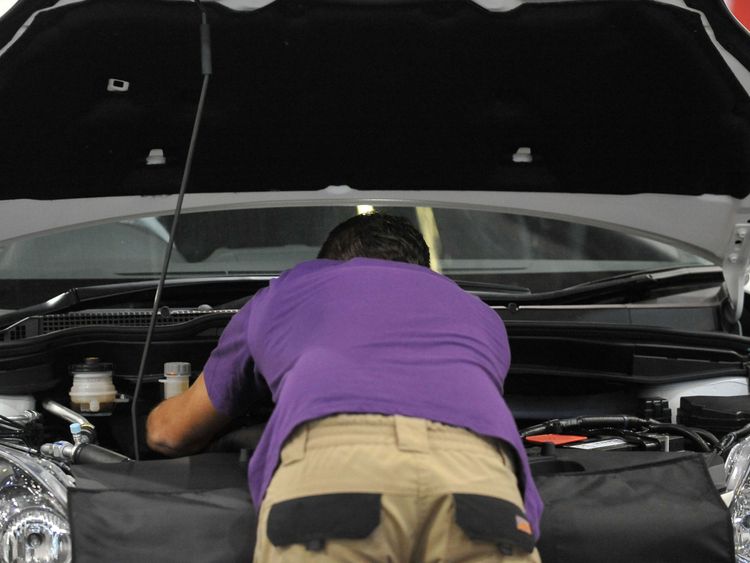Major changes to MOT test rules in Britain have come into force making it harder for cars, vans, motorbikes and other light passenger vehicles to be passed as safe to go on the roads.
The Driver and Vehicle Standards Agency (DVSA) says the shake-up has been designed to improve air quality and make roads safer.
Twenty-eight people were killed and 413 were seriously injured in accidents on Britain’s roads in 2016 when a vehicle defect was a contributory factor.
Defects found during the new MOT are now categorised as either “dangerous, major or minor”, depending on the type of problem and how serious it is.
Both “dangerous” and “major” defects are fails, whereas a “minor” defect is counted as a pass but should be repaired as soon as possible.
Diesel drivers will face stricter limits for emissions on vehicles with a diesel particulate filter (DPF), which captures soot.
Their vehicles will get a “major” fault if the MOT tester can see smoke of any colour coming from the exhaust or finds evidence that the DPF has been tampered with.
It is feared the new rules could lead to expensive bills for those who have previously taken their vehicles to unscrupulous garages where DPFs have been removed because they cost around £1,000 to replace when faulty.
The testers will carry out a number of new checks, including where tyres are obviously under-inflated, if the brake fluid has been contaminated and whether brake pads or discs are missing.
Gareth Llewellyn, chief executive of the DVSA, said: “DVSA’s priority is to help you keep your vehicle safe to drive.
“You can start to look forward to cleaner, safer vehicles, with greater clarity on any defects identified by the tester.
“A properly maintained vehicle should have no problem passing the new MOT.”
But motoring groups have expressed concern that many drivers are confused or unaware of the new test.
Breakdown cover provider Green Flag found 58% of 1,023 drivers surveyed did not know the changes came into effect on Sunday.
Nick Reid, head of automotive technology at Green Flag, said: “The majority of drivers are going to get caught out and potentially face fines.
“We are urging drivers to read up on the new rules and ensure that they book MOTs in early.”
Vehicles must undergo the test on the third anniversary of their registration and every 12 months if they are over three years old.
Vehicles will not need an MOT if they are over 40 years old and have not been “substantially changed”.
Drivers can be fined up to £1,000 for driving a vehicle without a valid MOT.
From – SkyNews





